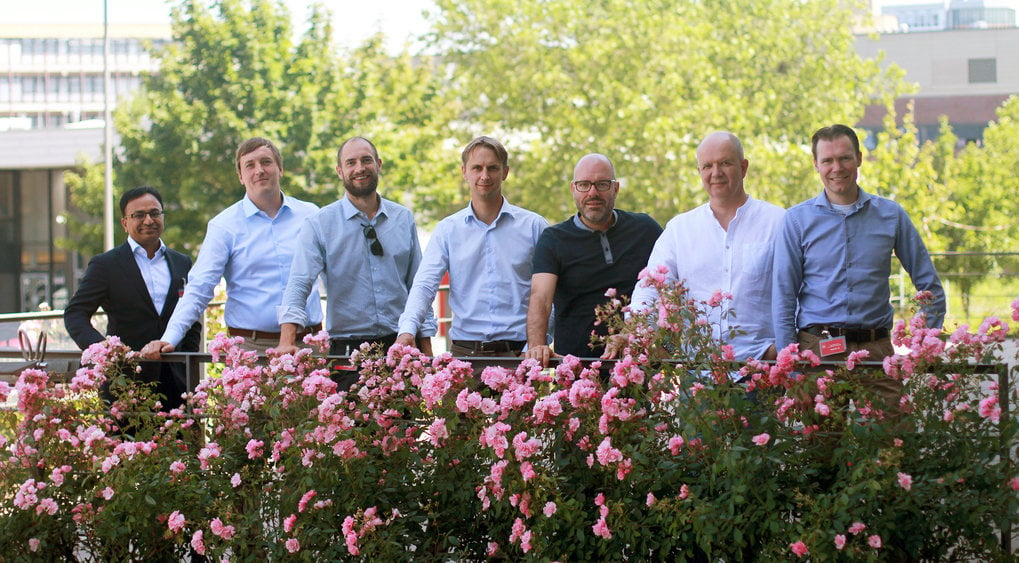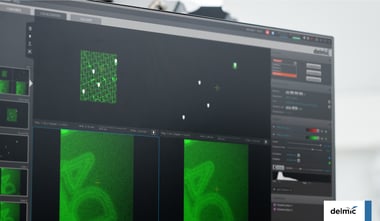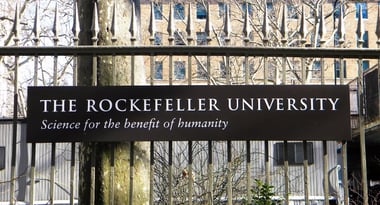The purpose of this consortium is developing innovative workflows and methods for cryo-electron tomography. The project received a grant by Eurostars, a joint funding program of the European Research Initiative EUREKA and the European Commission.
As project leader of the consortium, Delmic leads the work on creating a solution, which will simplify the complex work flow that is now involved in cryo tomography of whole cells and organisms. Cryo-electron microscopy (Cryo-EM), a technique which received the Nobel Prize in 2017, revolutionized the process of studying proteins. One of the Cryo-EM methods, called cryo-electron tomography, goes one step further. This method includes freezing the cells or tissues at the high speed, transferring them to the EM and then examining at approximately -190°C. After acquiring the series of two-dimensional images, they are then converted into 3D model.
While being extremely powerful for studying protein interactions in situ, this method is very laborious and is therefore currently only available to a few laboratories in the world. The aim of the consortium is to simplify the complex workflow involved in cryo electron tomography. Years of experience in the fields of cryogenic technologies, vacuum systems and correlative light and electron microscopy will help the consortium to develop improved methods for the contamination-free transfer of samples into the microscope and the archiving of frozen specimens. The new workflow CETFlow (Cryogenic Electron Tomography WorkFlow) is aimed at a larger group of users and will hopefully unlock cryo electron tomography to a far wider range of users.
We are thrilled about this collaboration with our partners! If you would like to stay updated about our projects, make sure to subscribe to our newsletter. To learn more about our partners in this project, keep reading below.
Max Planck Institute (MPI) of Molecular Physiology in Dortmund
The group of Prof. Dr. Stefan Raunser, director of The MPI in Dortmund, focuses on the molecular understanding of fundamental cellular processes and has a lot of expertise in the field of Cryo-EM.
Demcon kryoz
Demcon kryoz is part of the Demcon holding, a Dutch mechatronic engineering company. Demcon kryoz specializes in developing and delivering unique cryogenic solutions and thermal solutions for various applications.
CryoVAC
CryoVAC low temperature technologies inc. is a medium-sized company from Troisdorf, which has a long tradition in the production of cryogenic and vacuum systems.
University of Twente
The group of Prof. Dr. Srinivas Vanapalli at the University of Twente investigates new cooling systems.
Eurostars
Eurostars is a joint funding programme of EUREKA and the European Commission, which will be continued under the name Eurostars 2 under the Horizon 2020. Eurostars supports international innovative projects led by research and development-performing small-and medium-sized enterprises (R&D-performing SMEs). Eurostars works according to the same principle as the EUREKA initiative: Eurostars projects are open to technology and serve civil purposes. Eurostars aims to bring increased value to the economy, higher growth and more job opportunities.


This project has received funding from the Eurostars-2 joint programme with co-funding from the European Union Horizon 2020 research and innovation programme.
This work is supported by the European SME2 grant № 879673 - Cryo-SECOM Workflow
.png)






